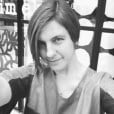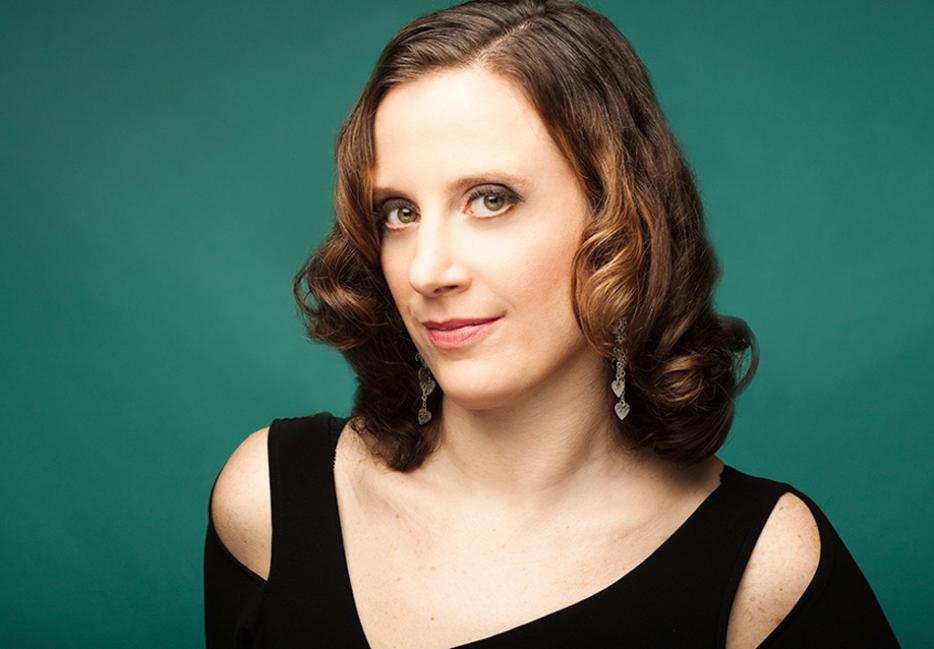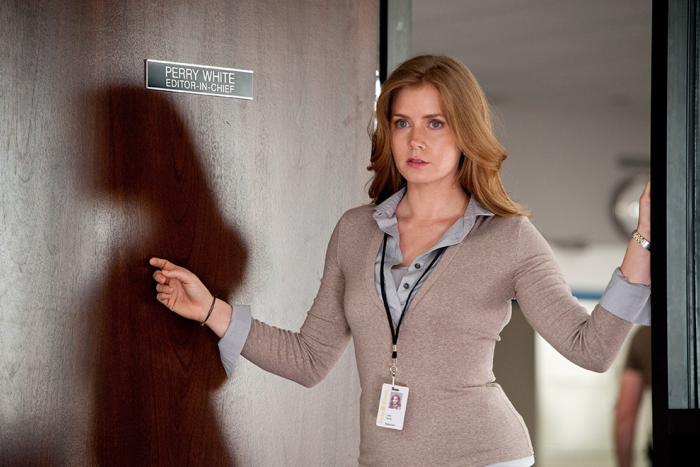To know your own story is central to the practice of writing; it’s the place where all other stories begin. But what if a barrier has been placed there deliberately?
That question is the thread running through Between Gods, the latest from poet and novelist Alison Pick. The memoir is an account of her embracing her Jewish roots, which her grandparents had discarded upon their arrival in Canada in 1940. Pick reckons with the silence and omission in the family story, and her simultaneous pull toward Judaism. The truth came to light during adolescence, when an overheard conversation confirmed something a classmate once alluded to: her church-going father was born a Jew, and in turn, he kept his parents’ secret.
What to do with the information? It takes 20 years for the identity crisis to make its way to the surface of her consciousness, but isn’t a pressing question until she begins writing Far To Go, a fictionalized account of a secular Jewish family in Nazi-occupied Czechoslovakia. It also coincides with her 2007 move to Toronto, along with an onset of severe depression.
“I always imagined that I could reclaim my family’s Judaism when I wanted, like a lost suitcase,” she writes in Between Gods, on learning that the beit din, a rabbinical court, does not recognize her as Jewish. She immerses herself in a conversion process that strains her relationship with her fiancé.
In Between Gods, she spills what is most raw and difficult—and often uncomfortably intimate—in her path to conversion. Sometimes the rawness distracts from the deeper truths, what it is in her blood that is being moved. Hiding is difficult to shake. Habits of secrecy, re-inscribed over successive generations, are difficult to shed. It takes courage to work up the nerve to ask questions, and the passage of time to know the answers.
You are frank about things people rarely speak openly about, including inappropriate behaviour in literary circles. Did you ever feel pressure not to include that?
Nobody said anything remotely along those lines. At this point, I work mostly with my editor Lynn, and she’s politically savvy and feminist—I would have been very surprised. It’s not an element of the book anyone has focused on, but I realize, now that you ask, that in the back of my mind I’ve been expecting someone to comment.
I can say with the book in general, whenever there were moments where I felt I was writing something vulnerable, I tried to include those rather than cut, which I did by reminding myself that the memoirs I respond to are the ones where I sense the writer is risking something, and saying slightly scary things.
Where else did you feel that fear? Do you mean the process by which you came to see yourself as Jewish?
You know, in some ways the whole book feels very raw and slightly scary. Certainly the depression scenes. The stuff around the Eli character [an ex-Hasidic writer she becomes infatuated with], and my ambivalence or fear leading up to getting married. There’s not really a thread in that book I don’t have some sense of feeling vulnerable about.
It’s obvious your crush stood in for other things: your longing for Judaism, to be seen. It’s one thing to talk about that privately, and another to put it in the book.
I have different thoughts on that: it became very clear to me that a memoir is a constructed piece of art in the way a novel is a constructed piece of art, and Degan [her husband] was also really aware of that. He, as a character, comes off very well—he’s the hero of the book. It was maybe easier for him that he appears a very strong and compassionate and understanding person. Certainly my other books haven’t taken up our personal experience the way this one has, but it’s also not unfamiliar to him.
When did you decide that this story would become a book?
It was partway through writing Far To Go, which I started 2007. Right away I began taking that separate set of notes that became Between Gods. All the way through I felt aware there were going to be a whole different set of audience issues with a memoir than what I was used to with a novel. My experience anyway is that I don’t choose the book; it just became clear that this was the next book I was writing, whether I wanted to or not.
Your story is very specific, that someone would grow up unaware that their background was originally Jewish. But it’s more common than you’d think.
I’ve been finding that’s true. And I’ve also had people who were adopted say they really connect to the book. In the sense that when you’re aware that there’s something in your past, but you don’t have the full story — you have the sense something is missing.
Your memoir begins with a dramatic moment, a chance meeting with a rabbi at the Griffin Poetry Prize. But I want know about your curiosity before that.
It’s interesting because the book is marketed as a “family secret,” and it certainly was a secret in the sense I didn’t know, my dad didn’t know [until his 20s]. Instead of being one big moment of “finding out,” it was the slow progression of knowing a little bit, and then a bit more. The psychic dance between what you know, and what you allow yourself to know. It was a very subtle and complex thing happening in my brain, and in my family, even before the book starts.
I talk about those moments: the one on the playground, where my friend says “Your dad’s Jewish,” and then overhearing conversation between my mom and my aunt, about matrilineal vs. patrilineal Judaism—with the implication that my dad was Jewish. When I was a teenager, conversations with my dad on the subject were very fraught, very charged. What stands out is the emotional tenor of the conversations, more than what was said. I remember feeling that there was no receptacle for my curiosity.
The conversation was shut down?
Not explicitly shut down, but it was clearly so stressful for him that the conversation didn’t go further. At the time he would always say, “It’s because your grandmother doesn’t want us to talk about it,” which I had always thought was an excuse. She died in 2000, and afterwards I was surprised to find my dad actually had been trying to protect her: he was a lot more willing. It’s all to say that my curiosity went in stages. When I started to write Far To Go was when I started to explore. But it had been a trajectory all along.
I can say with the book in general, whenever there were moments where I felt I was writing something vulnerable, I tried to include those rather than cut, which I did by reminding myself that the memoirs I respond to are the ones where I sense the writer is risking something, and saying slightly scary things.
This process for you—in the beginning there’s just this outpouring, and it happens during High Holidays, an emotional time of year.
Because I condensed two years in the book: that first year, it was Rosh Hashanah and I didn’t even know what Rosh Hashanah was. I have to almost retrain myself —I do think if it’s not something you’ve grown up with, it does feel like a new year in a secular way. Since I didn’t grow up with it, I also go through the same thing every year. Am I going to do it? Am I not going to do it? Because it’s a busy time of year, and it’s hard with a kid, and how am I going to do it? And it’s so powerful when I do.
It’s a full-time job to be Jewish for a few months there.
The thing that was most resonant was my dad coming to Toronto for Rosh Hashanah the following year. I will never forget that, the feeling of, “Oh! My dad is coming for Rosh Hashanah.” And also, well, a bit of resentment. Like, I was having to show him something that he hadn’t shown me. And yet also a sense of deep connection, that he was proud of me. It was a very nuanced all-kinds-of-feelings.
That it was both familiar and alien to you, that can be unsettling.
You’re right, in that it was reconciling the part of me that recognized myself as a Jew, and the part of me that was alienated and knew nothing about Judaism. It was easy to project the alienated part onto the whole system of the beit din and the rabbis, and the policy that wasn’t going to let me convert [as half of an intermarriage]. It was convenient to take the doubts that I had—there was inner conflict and uncertainty, doubt is maybe the wrong word—and project them on somebody else.. I was encountering what felt like a wall when I wanted to convert. It strengthened the part of me that felt, “I am sure.” I didn’t have to wrestle with that in an inner way, because it was all externalized.
And then you learn they’re supposed to be pushing you away.
Yeah. [Smiling] I knew intellectually. But it’s very hard not to take it personally.
Czech-Jewish experience is also specific: minority rights were in the 1918 Declaration, there were Jews in parliament. Of course, there was anti-Semitism but also Jewish and Czech culture thriving in the same milieu.
This is where it’s hard to talk about one book without the other, because they do feel like companion books, and I was working on them at the same time. I corresponded with many Czech Jews around Far To Go. Oftenan elderly Czech would write to me to say how they related to it, how well I had rendered the time and place—and then added a little PS: “But you got this wrong!”
That is so Czech! It gets complicated, because government policy was to encourage assimilation. Nationality was seen through the lens of language, and Czech Jews spoke German, their literature—not all—tended to be in German.
My grandparents spoke Czech and German fairly interchangeably: Czech may have been my grandfather’s first language, but certainly my grandmother spoke German. I feel like nobody knows that, and why would they? The degree of assimilation is a difficult thing to explain. It’s different, as you were saying, from Polish Jews, and I think people find that degree of assimilation in my family perhaps unusual, but it was common among Czech Jews. I know it because of my particular history, but when I do interviews, the fact my grandmother was baptized, that they celebrated Christmas—it seems surprising. People don’t have a framework to understand it. Like, why weren’t they doing Jewish things?
Having to go through a process because you had one Jewish parent, and it was your father, was that hurtful?
I certainly had a conflicted feeling whenthey said that to me. But in retrospect, I’m grateful that I had to go through that process, because I learned. If they had just said, “Sure, come on in,” my experience with Judaism now would be quite different. I think without that conversion course I would not have had an entry point. Now we go to Shul, not every week but once or twice a month, and my daughter does Jewish education one day a week, and we make Shabbat at home. I may well have found my way to those things without a year-long class. In the book there’s this emphasis on how terrible the teacher was, but there were also visiting rabbis. It was useful.
In the book the teacher kind of alienated your husband.
She had just been doing it too long; she didn’t know how to make people feel welcome. I don’t think she was doing it intentionally, but it didn’t help. There were people in that room trying to decide whether or not to convert, and here is someone who’s supposed to be an emissary of Judaism being terribly unwelcoming, and not particularly intelligent.
It’s a big deal, to undertake a spiritual search and have someone not able to engage you. Or was it even spiritual?
My sense of God didn’t really change. But that’s because the cultural and historical felt so rooted in me, it was spiritual in that way: it was about family and memory, and my history, and this tragedy. And the question of how to make meaning in a world where there is evil. It felt spiritual in that it engaged the deepest part. But it was not a conversion in the sense we traditionally understand it—a thunderbolt that hits you on the head, and suddenly you have a new understanding of God.
And yet you titled your book Between Gods.
Yeah, I was certainly between religions. What I realized at core was that the things I had to give up, i.e.: the idea that Christ was the son of God, and Christian holidays, none of those things were hard to give up because they had not really been who I was originally.
There were people in that room trying to decide whether or not to convert, and here is someone who’s supposed to be an emissary of Judaism being terribly unwelcoming, and not particularly intelligent.
But people must ask how much belief pulled you there?
It’s a bit of false dichotomy in the sense that underneath the cultural is history, memory, ancestry, all those big questions about what it is to be human, and those are spiritual questions. But the original pull was cultural.
The idea of depression as a spiritual crisis is something that has been explored in recent years. Do you think it’s why this all came up?
Do I think that the question came up during a time that I was depressed? [Pause] I don’t know that I would say it was cause and effect, but it’s also not coincidence. In my history with depression—those are the times you go into the darkness. I don’t think it was random that it happened then.
Possibly, we are dealing with intolerable circumstances, our awareness of human suffering on an unprecedented scale.
I could understand it that way, but only between bouts of depression. I could put that analytical lens on it but then when I was in the experience, to understand it made no difference in the experience of going through it. Unfortunately.
You had your own tradition of “24 Hours Unplugged” before you arrived in Toronto: the idea that you’d been observing a kind of Shabbat came as a total surprise?
I hadn’t heard of even the concept of Shabbat. Which speaks to how not-Jewish my environment had been. I knew nothing. I was in Newfoundland for seven years, so it must have been prior to that. In St. John’s, there was a little havurah of … [frowns] I don’t know how they would have identified: certainly as liberal, open-minded Jews. It’s strange that it was in Newfoundland, but that was the first time I was around a community of Jews. I think we started 24 Hours Unplugged in 2006? And then in 2007, I started writing Far To Go, and that was when I started to go to this little group. This was still in Newfoundland, before coming back to Ontario.
The woman you call Shayna in the book, she is your champion of sorts, she becomes the person urging you forward. Would you have gotten there regardless?
Yes, I think I would have. All of these things kept unfolding in one way or another. I thought it was Eli, but it wasn’t. There was a sense of inevitability to the process. Certainly I felt so grateful for the way things unfolded, and she was crucial.
She also plays a part in pushing you away.
Yes, but in a piece of art you’re trying to make the characters— they have to be complex. The real life situation was complex and the character has to have inner conflict, and the way she helped was instrumental.
How do you look at it now that some time has passed, and you’re parents?
[Degan’s] relationship to Judaism is different from mine, as is our daughter’s. We have to do things consciously because we didn’t grow up with it: we want her to have a sense of Jewish identity, but also not recreate the sense of secrecy I grew up with. I think of it as trying to bolster the Jewish parts of her identity rather than diminish the Christianity in the culture. Her grandmother is Christian and my parents celebrate Christmas. So we find age-appropriate ways to be honest about her background, and then be conscious about what is it to make Shabbat, what it is to celebrate these holidays. We have to put intention behind it, because there’s nothing that can be rote.





